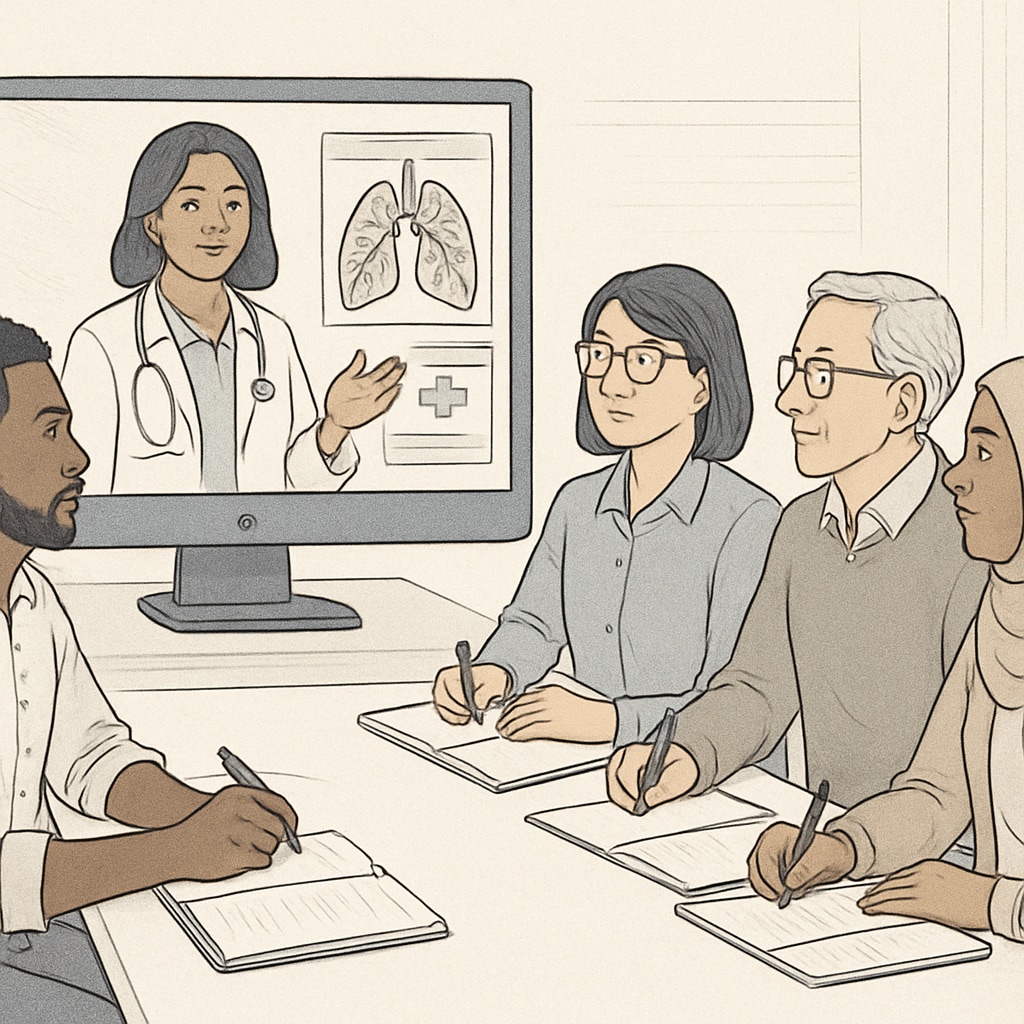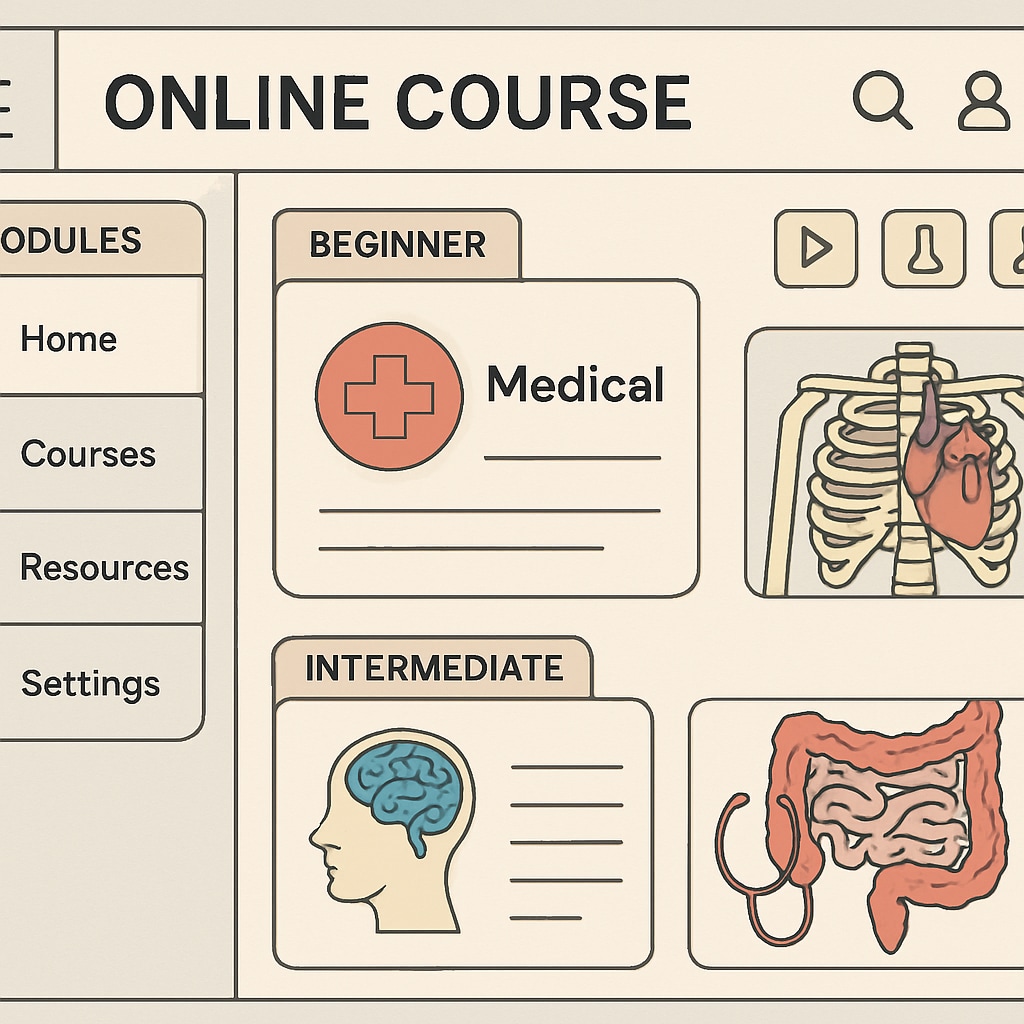For K-12 educators with no prior exposure to medical education, navigating the vast world of specialized medical knowledge can seem daunting. The challenge often lies in finding resources that strike the right balance between being “too advanced” or “too basic.” However, with the rise of online courses, educators can now access tailored medical education resources that bridge this gap effectively. This article outlines practical strategies for educators to gain foundational and advanced understanding of specific medical topics.
Why K-12 Educators Might Need Medical Knowledge
Although K-12 education is not directly linked to clinical medicine, there are several scenarios where gaining medical knowledge can be beneficial. For example:
- Developing science curricula that include human anatomy or health education.
- Supporting students with chronic medical conditions or disabilities.
- Engaging in interdisciplinary teaching approaches that connect biology with real-life applications.
Understanding the basics of medical science allows educators to enrich classroom discussions, answer student questions with confidence, and create a more inclusive learning environment.
Challenges Faced by Non-Medical Professionals in Medical Education
One of the key obstacles for non-medical professionals is the steep learning curve associated with medical terminologies and concepts. Resources are typically designed for either medical students or laypersons, leaving little room for intermediate learners. Additionally, the sheer volume of information can overwhelm someone without a structured learning plan.
To address these challenges, consider the following approaches:
- Start with foundational courses that cover the basics of human biology and anatomy.
- Progressively explore specialized topics such as cardiology or neurology through online platforms.
- Use multimedia resources like videos, simulations, and interactive quizzes to reinforce learning.

Top Online Resources for Medical Education
Thanks to advancements in technology, there is a wealth of online platforms that cater to learners with non-medical backgrounds. Below are some recommended resources:
1. Massive Open Online Courses (MOOCs)
Platforms like Coursera and edX offer a variety of medical courses taught by university professors. These courses often include video lectures, readings, and graded assignments to track progress.
2. Khan Academy
Khan Academy provides free, high-quality lessons on human anatomy and physiology. The platform is particularly user-friendly for beginners.
3. YouTube Channels
Channels like “Armando Hasudungan” and “Osmosis” specialize in breaking down complex medical concepts into simple, engaging visuals. These resources are great for visual learners.
4. Professional Organizations
Institutions such as the American Medical Association or the Association of American Medical Colleges often provide free or low-cost learning resources tailored to non-professionals.
Developing a Structured Learning Plan
To make the most of these resources, create a structured learning plan that aligns with your goals. Here’s a simple framework to follow:
- Identify your objectives: Are you looking to teach basic health topics, or do you need in-depth knowledge of a specific field?
- Choose the right resource: Match your goals with the platforms mentioned above.
- Set milestones: Break down the learning process into manageable chunks, such as completing one module per week.
- Assess progress: Use quizzes or assignments to evaluate your understanding.

The Long-Term Benefits of Medical Education for Educators
Investing time in medical education offers several long-term benefits:
- Improved confidence in discussing medical topics with students.
- The ability to design more engaging and informative lesson plans.
- Enhanced collaboration with healthcare professionals when addressing student needs.
Moreover, acquiring medical knowledge can open doors to interdisciplinary opportunities, such as STEM initiatives or community health projects.
In conclusion, while the journey to understanding medical science as a non-medical professional may seem challenging, the availability of online courses makes it accessible. By leveraging the right resources and following a structured plan, K-12 educators can gain valuable medical knowledge that enhances their teaching and supports their students effectively.
Readability guidance: Use short paragraphs and bullet points to summarize key ideas. Maintain a balance between academic and conversational tone. Include transitions to ensure a smooth reading flow.


